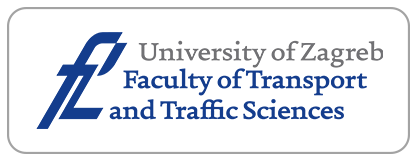Research on the Efficiency of Major Airports in China’s Six Major Airport Cluster: Based on Common Frontier Super-Efficiency DEA and Malmquist Method

Downloads
Airport clusters are of great significance to the sustainable development of the civil aviation transportation industry. The study utilises common frontier and super-efficiency DEA methods to assess the efficiency of China’s six major airport groups. It then employs the Malmquist index method to analyse changes in airport productivity. The results highlight regional disparities in airport efficiency. The East China Airport Group and the Southwest Airport Group consistently demonstrate excellent efficiency values, while the North China Airport Group and the Northeast Airport Group have significant room for improvement. Most airports within the groups operate at low and ineffective levels, with efficiency initially increasing and then decreasing. Moreover, the technology gap ratio (TGR) for each airport group somewhat shows a downward trend. The Malmquist index indicates that the overall factor productivity of each airport has generally remained stable, with efficiency growth primarily dependent on scale efficiency. On average, technical efficiency has increased by 1.5%. However, in terms of technological changes, most airports have experienced technological regression, indicating insufficient focus on technological improvement. Therefore, it is crucial to prioritise technological innovation and enhance management efficiency to achieve efficiency improvements in airport clusters. It is necessary to formulate strategies accurately based on the specific conditions of different regions, promote coordinated development, foster regional exchanges and cooperation, address regional disparities, ensure sustainable development of China’s airport clusters, and establish a world-class airport cluster.
Downloads
Gillen D, Lall A. Developing measures of airport productivity and performance: An application of data envelopment analysis. Transportation Research Part E: Logistics and Transportation Review. 1997;33(4):261–273. DOI: 10.1016/S1366-5545(97)00028-8.
Lam SW, Low JMW, Tang LC. Operational efficiencies across Asia Pacific airports. Transportation Research Part E: Logistics and Transportation Review. 2009;45(4):654–665. DOI: 10.1016/j.tre.2008.11.003.
Lozano S, Gutiérrez E. Slacks-based measure of efficiency of airports with airplanes delays as undesirable outputs. Computers & Operations Research. 2011;38(1):131–139. DOI: 10.1016/j.cor.2010.04.007.
Rapee P, Peng KC. Measuring Efficiency of Main Airports in Thailand by an Integrated DEA-AHP Method. Advanced Materials Research. 2014;1030–1032:2203–2206. DOI: 10.4028/www.scientific.net/AMR.1030-1032.2203.
Örkcü HH, et al. An evaluation of the operational efficiency of turkish airports using data envelopment analysis and the Malmquist productivity index: 2009–2014 case. Transport Policy. 2016;48:92–104. DOI: 10.1016/j.tranpol.2016.02.008.
Lo Storto C. The analysis of the cost-revenue production cycle efficiency of the Italian airports: A NSBM DEA approach. Journal of Air Transport Management. 2018;72:77–85. DOI: 10.1016/j.jairtraman.2018.05.010.
Huynh TM, Kim G, Ha HK. Comparative analysis of efficiency for major Southeast Asia airports: A two-stage approach. Journal of Air Transport Management. 2020;89:101898. DOI: 10.1016/j.jairtraman.2020.101898.
Chae M, Kim TS. Factors affecting the development of hub airport clusters: Focusing on the roles of low-cost carriers in the Asia-Pacific region. International Journal of Urban Sciences. 2015;19(3):305–319. DOI: 10.1080/12265934.2015.1100091.
Wang CY, Wu WW, Zhang J. Research on the efficiency of Beijing-Tianjin-Hebei airport group based on system dynamics. Journal of Physics: Conference Series. 2019;1187(4):042069. DOI: 10.1088/1742-6596/1187/4/042069.
Zhang P, et al. Synergetic development measure of airport groups composite system and its influencing factors analysis: Some evidence from China. Journal of Advanced Transportation. 2023;2023:1–12. DOI: 10.1155/2023/5676795.
Copyright (c) 2024 Qing LIU, Qiwei QIAN

This work is licensed under a Creative Commons Attribution-NonCommercial 4.0 International License.




















